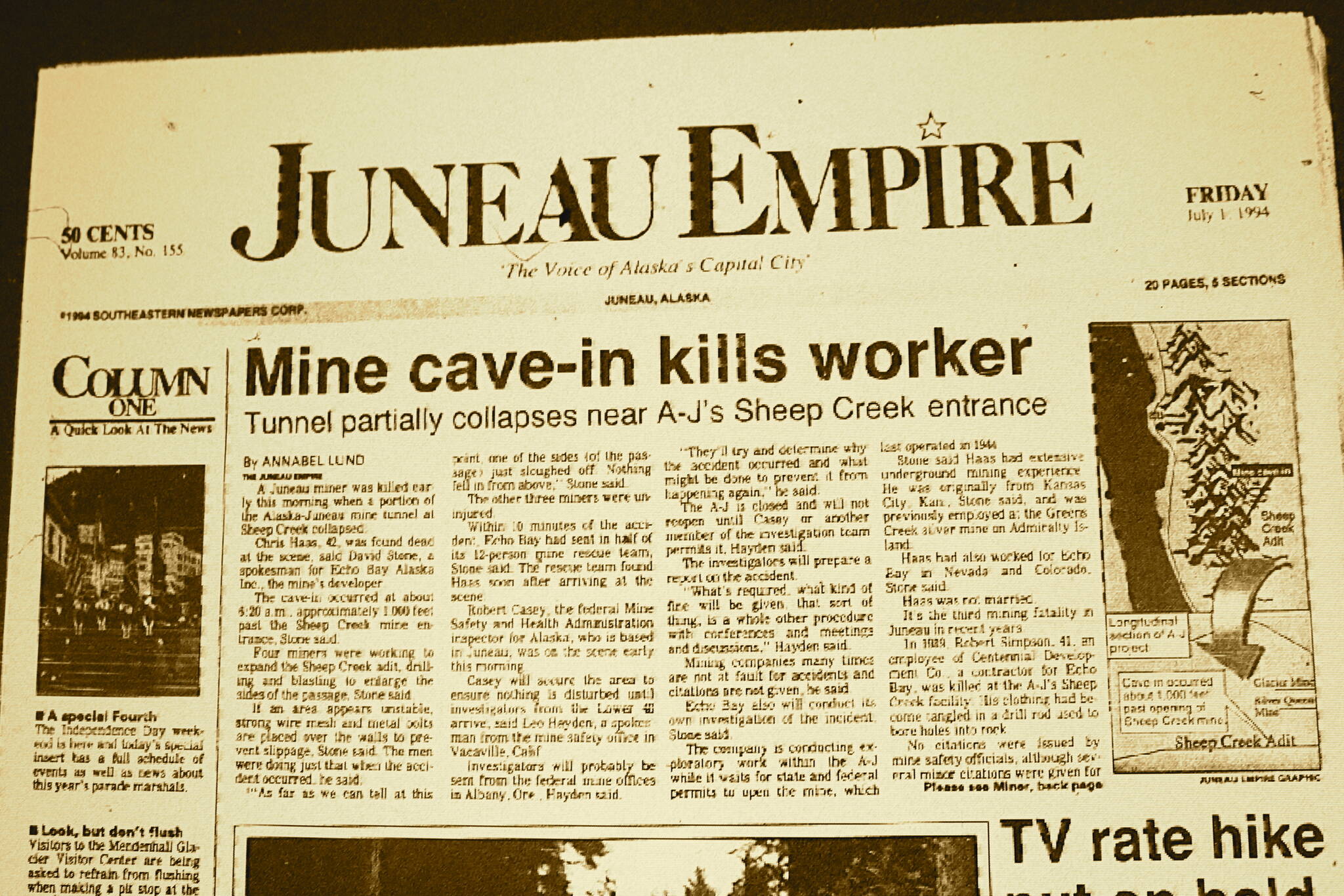Empire Archives is a series printed every Saturday featuring a short compilation of headline stories in the Juneau Empire from archived editions in 1984, 1994 and 2004.
This week in 1984, for the first time in about two months the smell of brewing coffee, and the clink of silverware and dishes emanated from the coffee shop of the Baranof Hotel. In the lobby, the desk manager gave instructions to his staff while construction workers moved about putting the finishing touches on the lobby in preparation for the Baranof’s reopening. At noon, a Russian Orthodox tour group was scheduled to check into Juneau’s landmark Baranof Hotel, which has been closed since an April 27 fire ripped through the main floor, causing about $2 million in damage. A 32-year-old former employee of the hotel, Eduardo Ortiz, has been charged with arson in connection with the fire. Most of the scars of the blaze have been erased from the main lobby and coffee shop following two months of work and several million dollars in construction costs. Phase One of the hotel’s $5 million refurbishing is scheduled to be completed next week and includes the reopening of the newly named coffee shop, as well as the third through ninth floors of the hotel. The second phase consists of reconstructing the Gold Room, which will be the hotel’s 100-seat dining room, remodeling the main lobby and finishing the Bubble Room lounge.
Original Story: “Back in business: Historic Baranof reopens after April fire,” by Debbie Reinwand Rose. 7/6/1984.
This week in 1994, a Juneau miner was killed earlier this morning when a portion of the Alaska-Juneau mine tunnel at Sheep Creek collapsed. Chris Haas, 42, was found dead at the scene, said David Stone, a spokesman for Echo Bay Alaska Inc., the mine’s developer. The cave-in occurred at about 6:20 a.m. about 1,000 feet past the Sheep Creek mine entrance, Stone said. Four miners were working to expand the Sheep Creek adit, drilling and blasting to enlarge the sides of the passage, Stone said. If an area appears unstable, strong wire mesh and metal bolts are placed over the walls to prevent slippage, he said. The men were doing just that when the accident occurred. “As far as we can tell at this point, one of the sides of the passage just sloughed off. Nothing fell in from above,” Stone said. Within 10 minutes of the accident, Echo Bay had sent in half of its 12-person mine rescue team, Stone said. The rescue team found Haas soon after arriving at the scene.
Original Story: “Mine cave-in kills worker,” by Annabel Lund. 7/1/1994.
This week in 2004, Wild salmon appear to be running at their strongest in more than a decade and their asking price isn’t half bad either. However Juneau fishermen, such as Matt Cole, have good reason for guarded optimism. Cole was so disappointed with last summer’s rock-bottom prices for king salmon that he gave up after a few days’ work and trolled for lower-grade dog salmon instead. “I wouldn’t kill a king for 65 cents a pound,” he said. But now kings and coho are running in high numbers up and down the West Coast — from California to Alaska. “Kings have been excellent,” said Brian Lynch, Southeast Alaska regional troll management biologist. He noted that there have been record king salmon returns from the often-dismal, dammed-up Columbia River, the origin of a quarter of Alaska’s harvest in a typical year. And if it’s any indication of an improving trend in wild salmon prices, the payoff on the spring 2004 trolling season, which ended today, was much better than spring 2003. The price for kings was $3.03 per pound this spring compared to last spring’s average of $1.50, according to Lynch. The positive news has kicked up interest within Juneau’s small fleet of trolling vessels, which will join the rest of Southeast Alaska for the first general summer troll harvest opening Thursday.
Today the outlook for the seafood industry is the most pessimistic among all industries in Southeast Alaska, according to a business climate survey presented to local business leaders last week. Low salmon prices are a primary concern, resulting from numerous global factors including a global downturn in seafood demand, a backlog of inventory and Russia flooding the market with low-cost seafood. There’s also uncertainty about fish processors operating in Southeast, as well as legal issues including a pending petition seeking to classify king salmon as endangered.
Original Story: “Year of the king: Numbers, prices up,” by Elizabeth Bluemink. 6/30/2004.
• Contact Mark Sabbatini at mark.sabbatini@juneauempire.com or (907) 957-2306.

